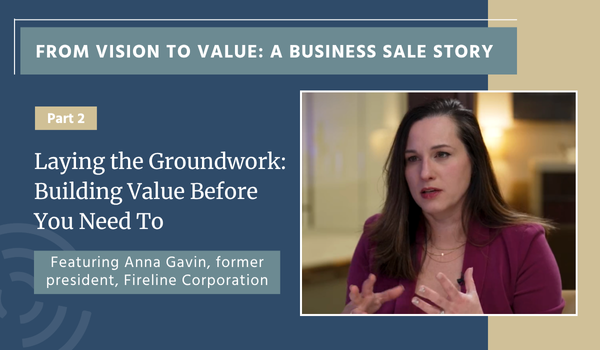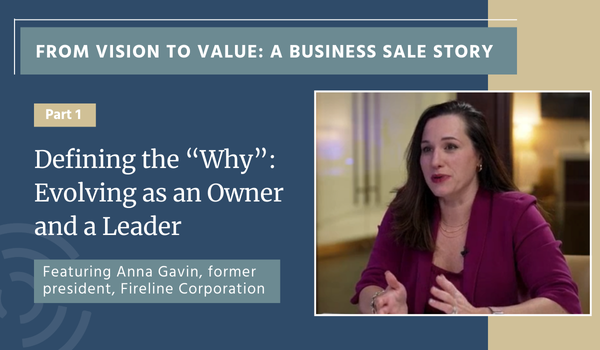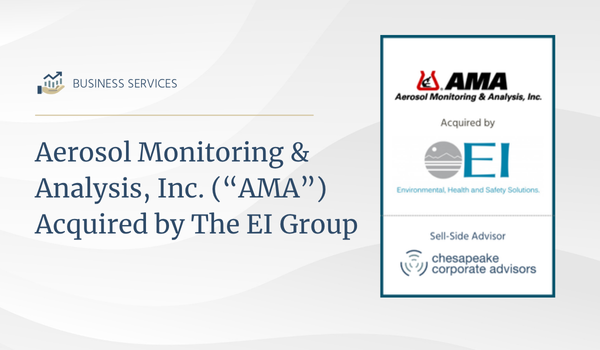This article was originally published on August 12, 2023 on the I-95 Business website.
Selling your business is one of the most significant decisions of your life, but there are pitfalls that can jeopardize the outcome. It pays to avoid common mistakes that other sellers have encountered.
1. Limiting yourself to one buyer.
Some owners enter into an agreement with one party assuming it will be a done deal. However, it may not be the best deal. Lack of competition places the buyer in the driver’s seat; meanwhile, you have no way of knowing if you realized the full deal potential.
Advice: Engage in a full or limited competitive process to maximize the likelihood of obtaining the best offer and terms.
2. Not hiring the right team.
If you engage with a buyer with experience purchasing companies and a strong advisory team, but you attempt to go it alone, you will be at a disadvantage.
Advice: Assemble a team of professionals experienced in selling businesses, including an investment banker, CPA, M&A attorney, wealth manager, and estate planning attorney.
3. Underestimating the time commitment.
Selling a business is a time-consuming endeavor, especially at a time when due diligence takes longer and involves more requirements.
Advice: Lean on your advisors for realistic expectations about what the process involves and how much time you must commit.
4. Accepting a vague Letter of Intent (LOI).
The LOI sets the stage for an agreement that can unlock the greatest value for you. Absent specifics, the buyer can change value, terms, and structure throughout the process.
Advice: Ask your investment banker for a process letter outlining what the LOI should spell out such as the basis for the sale price.
5. Not keeping a complete capitalization table.
Your capitalization table outlines who owns shares in the company and their percentage ownership, among other details. Ambiguity about ownership can stall or derail the deal.
Advice: When offering equity in the company, avoid handshake agreements. Document the details in writing and update your cap table accordingly.
6. Failing to develop a solid management team.
Buyers don’t want to acquire a company that depends on a single leader. A deep management team secures their confidence and speeds due diligence by spreading responsibility for the tasks it involves.
Advice: Strengthen and expand your management team as you scale the business.
7. Lack of proper financial reporting.
Buyers want full visibility into your financials to reduce the risk of a bad deal. However, some companies lack the capabilities to deliver robust reports.
Advice: Build an internal finance team and equip them with the tools to support the company you want to build and eventually sell.
8. Failing to restrict key personnel.
Buyers expect you to lock up key team members with non-compete and non-solicitation agreements, reducing their odds of losing essential staff or customers after the deal closes.
Advice: Ask legal counsel which restrictions are acceptable in your industry and fit within your culture.
9. Taking your eye off the ball.
It’s easy to become so focused on selling the company that you become distracted from growing it profitably. If financial performance declines during the process, the buyer will alter the sale price or deal structure to compensate.
Advice: Stay focused on driving revenue and maintaining profitability.
10. Overlooking customer or vendor relationship issues.
Relationships with key customers and vendors could pose conflicts with the buyer. For instance, some contracts include limitations on change in control, which adds complexity and requires additional customer management.
Advice: Try to limit such requirements to notification only, not consent, or attempt to strike them entirely. If requirements are non-negotiable, work to understand how the vendor/customer has handled such situations previously so you know what to expect.
11. Not obtaining a Sell-Side Quality of Earnings report.
Buyers expect an objective, accurate accounting of the quality of your assets and earnings historically. Failing to have this document in hand can slow the process.
Advice: If your business earns more than $3 million/year, develop a Quality of Earnings 6-12 months before going to market, allowing time to implement any necessary changes.
12. Not aligning expectations.
If you’re expecting an all-cash deal at 10x and the buyer is looking at 5x, with 50% cash at closing and the balance through earnouts, you could waste time and energy on a deal that never closes.
Advice: Engage advisors who know how valuations and deal structures are trending and can prepare you for the most likely outcome.
About Chesapeake Corporate Advisors
Chesapeake Corporate Advisors is a boutique investment banking and corporate advisory firm providing strategic advisory services (value creation) and investment banking services (value realization) to companies with revenues between $10 million and $200 million. For more information, visit www.ccabalt.com or call 410.537.5988.





